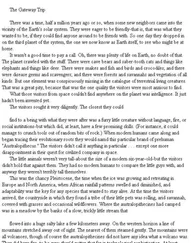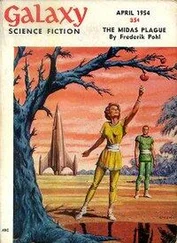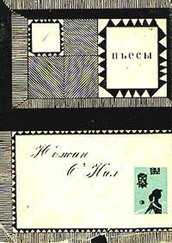Pohl, Frederik - Beyond the Blue Event Horizon
Здесь есть возможность читать онлайн «Pohl, Frederik - Beyond the Blue Event Horizon» весь текст электронной книги совершенно бесплатно (целиком полную версию без сокращений). В некоторых случаях можно слушать аудио, скачать через торрент в формате fb2 и присутствует краткое содержание. Жанр: Старинная литература, на английском языке. Описание произведения, (предисловие) а так же отзывы посетителей доступны на портале библиотеки ЛибКат.
- Название:Beyond the Blue Event Horizon
- Автор:
- Жанр:
- Год:неизвестен
- ISBN:нет данных
- Рейтинг книги:4 / 5. Голосов: 1
-
Избранное:Добавить в избранное
- Отзывы:
-
Ваша оценка:
- 80
- 1
- 2
- 3
- 4
- 5
Beyond the Blue Event Horizon: краткое содержание, описание и аннотация
Предлагаем к чтению аннотацию, описание, краткое содержание или предисловие (зависит от того, что написал сам автор книги «Beyond the Blue Event Horizon»). Если вы не нашли необходимую информацию о книге — напишите в комментариях, мы постараемся отыскать её.
Beyond the Blue Event Horizon — читать онлайн бесплатно полную книгу (весь текст) целиком
Ниже представлен текст книги, разбитый по страницам. Система сохранения места последней прочитанной страницы, позволяет с удобством читать онлайн бесплатно книгу «Beyond the Blue Event Horizon», без необходимости каждый раз заново искать на чём Вы остановились. Поставьте закладку, и сможете в любой момент перейти на страницу, на которой закончили чтение.
Интервал:
Закладка:
Lurvy looked around, considering. “I think not-unless you think we should tell your friends we are coming, Wan?”
“The Dead Men?” he shrilled, grinning. “They will not know. They are not alive, you know, they have no sense of time.”
“Then why do you like them so much?” Janine demanded.
Wan caught the note of jealousy and scowled at her. “They are my friends,” he said. “They cannot be taken seriously all the time, and they often lie. But they do not ever make me feel afraid of them.”
Lurvy caught her breath. “Oh, Wan,” she said, touching him. “I know we haven’t been as nice as we might. We’ve all been under a great strain. We’re really better people than we must seem to you.”
Old Peter had had enough. “Go you now,” he snarled. “Prove this to him, do not stand talking forever. And then come back and prove it to me!”
6 After the Fever
Less than two hours-the fever had never been so short before. Nor had it ever been as intense. The most susceptible one percent of the population had simply been out of it for four hours, and nearly everyone had been severely affected.
I was one of the lucky ones, because after the fever I was only stuck in my room, with nothing more than a bump on the head from falling over. I wasn’t trapped in a wrecked bus, crashed out of a jet-liner, struck by a runaway car, or bleeding to death on an operating table while surgeons and nurses writhed helplessly on the floor. All I had was one hour, fifty-one minutes and forty-four seconds of delirious misery, and that diluted because it was shared with eleven billion other people.
Of course, everybody in all those eleven billion was trying to get in touch with everybody else, all at once, and so communications were jammed for fair. Harriet formed herself in the tank to tell me that at least twenty-five calls were coming in for me-my science program, my legal program, three or four accountancy programs from my holdings, and quite a few real, live people. None of them, she told me apologetically when I asked, was Essie; the circuits to Tucson were out entirely at the moment, and I couldn’t place a call from my end either. None of the machines had been affected by the madness. They never were. The only time something went wrong with them was when some live person had injected himself into the circuit, for maintenance or redesign. But, as statistically that was happening a million times a minute, somewhere in the world, with some machine or another, it was not surprising that some things took a little while to get going again.
First order of business was business; I had to pick up the pieces. I gave Harriet a hierarchy of priorities, and she began feeding me reports. Quick bulletin from the food mines: no significant damage. Real estate: some minor incidents of fire and flooding, nothing that mattered. Someone had left a barrier open in the fish factories and six hundred million fingerlings swam out to lose themselves in the open sea; but I was only a minority stockholder in them anyway. Taken all in all, I had come out of the fever smelling of roses, I thought, or anyway a lot better than a lot of others. The fever had struck the Indian subcontinent after midnight of a day that already had seen one of the worst hurricanes the Bay of Bengal had produced in fifty years. The death toll was immense. Rescue efforts had simply stopped for two hours. Tens, maybe even hundreds, of millions of people had been simply unable to drag themselves to high ground, and southern Bangladesh was a swamp of corpses. Add in a refinery explosion in California, a train wreck in Wales, and a few as yet uncatalogued disasters-the computers did not yet have an estimate of deaths, but the news reports were calling it the worst ever.
By the time I had taken all the urgent-urgent calls the elevators were running again. I wasn’t a captive any more. Looking out the window, I could see the Washington streets were normal enough. My trip to Tucson, on the other hand, was well bollixed. Since half the jets in the air had been on automatic pilot for two hours, seriously depleting their fuel, they had been landing where they could, and the lines had equipment in all sorts of wrong places. The schedules were scrambled. Harriet booked me the best she could, but the first space she could confirm was not until noon the next day. I couldn’t even call Essie, because the circuits were still jammed. That was only an annoyance, not a problem. If I really wanted to get through, there were priorities at my disposal-the rich have their perks. But the rich have their pleasures, too, and I decided it would be fun to surprise Essie by dropping in on her.
And meanwhile I had time to spare.
And all this time my science program had been bursting with things to tell me. That was the dessert after the spinach and liver. I had put it off until I had a chance for a good, long natter; and that time had arrived, “Harriet,” I said, “put him on.” And Albert Einstein took form in the tank, leaning forward and twitching with excitement. “What is it, Al,” I asked, “something good?”
“Sure thing, Robin! We’ve found out where the fever comes from-it’s the Food Factory!”
It was my own fault. If I had let Albert tell me what was on his mind at once, I wouldn’t have been just about the last person on Earth to find out that I owned the place all the trouble came from. That was the first thing that hit me, and I was thinking about possible liability and sniffing for advantages all the time he was explaining the evidence to me. First and conclusive, of course, was the on-the-spot pickup from the Food Factory itself. But we should have known all along. “If I had only timed the Onsets carefully,” Albert berated himself, “we could have located the source years ago. And there were plenty of other clues, consistent with their photonic nature.”
“Their what nature?”
“They are electromagnetic, Robin,” he explained. He tamped tobacco into his pipe and reached for a match. “You realize, of course, that this is established by transmission time-we received whatever signal caused the madness at the same time as the transmission showing it happening.”
“Wait a minute. If the Heechee have faster-than-light radio, why isn’t this the same?”
“Ah, Robin! If we only knew that!” he twinkled, lighting his pipe. “I can only conjecture-“ puff, puff, “that this particular effect is not compatible with their other mode of transmission, but the reasons for that I cannot even speculate on at this time. And, of course,” he went on, “there are certain questions raised at once to which we do not as yet have any answers.”
“Of course,” I said, but I didn’t ask him what they were. I was on the track of something else. “Albert? Display the ships and stations you drew information from in space.”
“Sure thing, Robin.” The flyaway hair and the seamed, cheerful face melted away, and at once the holographic tank filled with a representation of circumsolar space. Nine planets. A girdle of dust that was the asteroid belt, and a powdery shell far out that was the Oort cloud. And about forty points of colored light. The representation was in logarithmic scale, to get it all in, and the size of the planets and artifacts immensely enlarged. Albert’s voice explained, “The four green ships are ours, Robin. The eleven blue objects are Heechee installations; the round ones are only detected, the star-shaped ones have been visited and are mostly manned. All the others are ships that belong to other commercial interests, or to governments.”
I studied the plot. Not very many of the sparks were anywhere near the green ship and blue star that marked the Food Factory. “Albert? If somebody had to get another ship out to the Food Factory, which one could get there fastest?”
Читать дальшеИнтервал:
Закладка:
Похожие книги на «Beyond the Blue Event Horizon»
Представляем Вашему вниманию похожие книги на «Beyond the Blue Event Horizon» списком для выбора. Мы отобрали схожую по названию и смыслу литературу в надежде предоставить читателям больше вариантов отыскать новые, интересные, ещё непрочитанные произведения.
Обсуждение, отзывы о книге «Beyond the Blue Event Horizon» и просто собственные мнения читателей. Оставьте ваши комментарии, напишите, что Вы думаете о произведении, его смысле или главных героях. Укажите что конкретно понравилось, а что нет, и почему Вы так считаете.












